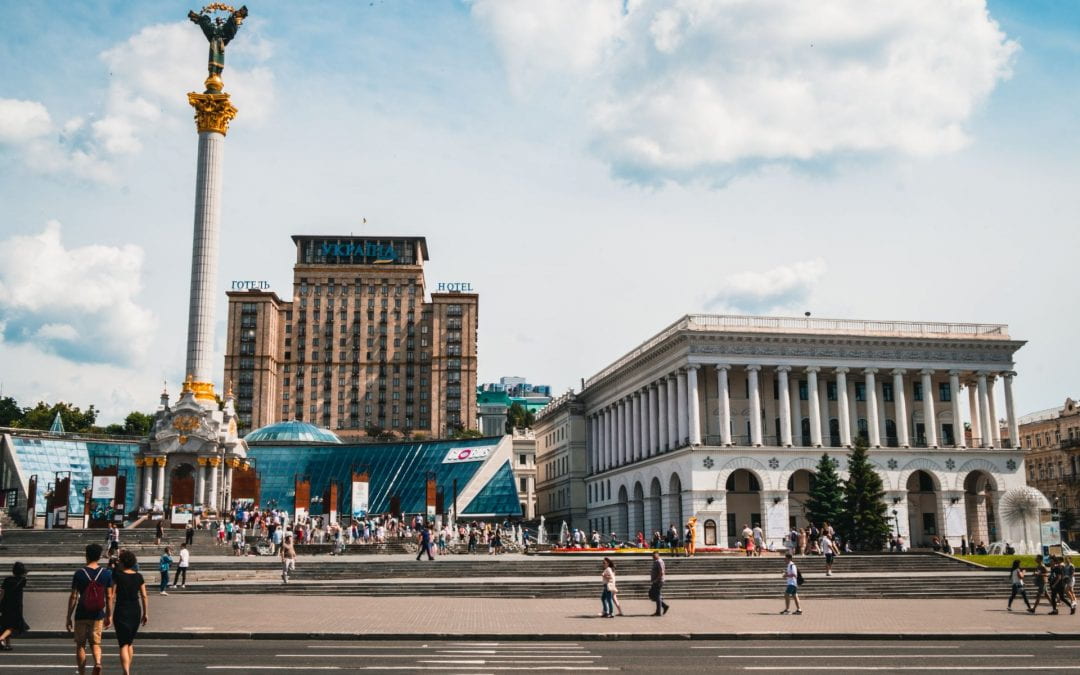By Steve Hoadley
The recognition by President Putin of the Donetsk and Luhansk ‘Peoples Republics’ on 21 February is his latest initiative to expand Russia’s influence. Will he prevail? Will he pause or push further?
History is rich with examples of ‘irredentism’, that is territorial aggression ostensibly to ‘protect’ the clients of the aggressor, whether they be similar in race, language, religion, or history, from the alleged oppression of the host neighbour. World War II was foreshadowed by Hitler’s concern for Germans in Austria and the ‘protection’ of Sudetenland Germans in Czechoslovakia, and by Stalin’s ostensible concern for Russian speakers in Poland. Japan’s militarists exaggerated threats to supply chains and Japanese settlers to justify the colonisation of Manchuria in 1931.
Today these irredentist claims are elements of a menu of aggression known as ‘grey zone tactics’ or ‘hybrid warfare’, and sometimes ‘salami-slicing’. Propaganda, misinformation, espionage, cyberhacking, ‘false flag attacks’ and covert incursions are on the menu. Russia and China have developed considerable skill in these techniques to expand their territorial influence without open military attack or provoking decisive counter-attacks.
In the Russian case, Putin has consistently asserted that Ukraine is not a ‘proper’ state but rather an artificial clone manipulated by the West. Its true character and identity are Russian, he claims, and indeed the Russians as a people trace their origins back to the Kyiv Rus tribe a millennium ago. Thus the Ukrainians are really Russians and Ukraine belongs to Russia.
This ignores the fact that the Ukrainian language subsequently evolved with Polish and Lithuanian influences distinct from Russian, and that in various eras Ukraine has been part of the Polish-Lithuanian, Mongol, Ottoman Turk and Nazi empires. Only since Catherine the Great has Ukraine been subjugated by Czarist Russia and then the Soviet Union. The collapse of the USSR in 1991 inaugurated three decades of Ukrainian independence, self-consciousness, and nationalism.
Yes, up to a quarter of Ukrainians are settlers from Russia or speak Russian. They live mostly in the east and south and accept Russian influence. These are the areas that Russian operatives infiltrated and annexed in 2014 – the Crimea – or in which Russia covertly mobilised local dissidents to secede from Ukraine – Donetsk and Luhansk.
This week Putin formally recognised the Donetsk and Luhansk ‘Peoples Republics’ and dispatched ‘peacekeepers’ (combat troops) to protect these contrived entities from an attack allegedly planned by Ukraine forces backed by the NATO alliance. This was audacious deception in face of the visibly defensive posture of the Ukrainian military and the reluctance of the European and Americans to engage in combat in the aftermath of their Balkan, Iraq, Syria, and Afghanistan debacles. In fact, President Biden and NATO leaders have explicitly ruled out military intervention in favour of economic sanctions in the event Russia invades Ukraine.
The meaning of the term ‘invade’ is now a fulcrum on which diplomacy is precariously balanced against military action. It is an open secret that Russia has covertly provided military assistance, weapons, and advisors to the Donbas separatists since 2014. So if Russia now openly sends additional assistance, weapons, and advisors to the new ‘republics’, does this constitute ‘invasion’ and trigger maximum economic responses from NATO, the EU, and the US? Will the North Stream gas pipeline from Russia to Germany be stopped?
Given the unanimity principle in NATO and the EU and given the reluctance of some members such as Germany to jeopardise their trade, investment and energy dependence on Russia, a quick and decisive response is unlikely to be agreed upon. If Russian confines its overt military intervention to areas already under separatist control and does not move beyond the current military perimeter to occupy the rest of the two provinces, or does not attempt to open a land corridor to Crimea, it is likely that the Europeans will prevaricate and impose only token sanctions. Because Russia is backed by China, Putin and his oligarchical cronies can withstand the economic hardships by passing them down to the Russian population, as they have done for the past decade. One can expect political repression to intensify to entrench Putin’s regime in the face of popular discontent.
So far, then, Putin has won. He has asserted Russian influence not only in parts of Ukraine but also in South Ossetia and Abkhazia, in Belarus, and in Syria. Analysts who assess Putin as a cautious gambler predict that he will pause now. If so, he can consolidate his territorial gains. Further, he has demonstrated Russia’s importance on the world geopolitical stage.
But what next? Hitler paused in 1939 and 1940, then attacked France, then Britain, and then Russia. Japan paused after colonising Manchukuo (Manchuria) and then in 1937 provoked the Marco Polo Bridge incident and attacked southern China, Southeast Asia, and the United States. Both miscalculated, over-reached, and brought disaster to their people.
Will Putin prove to be a true Machiavellian, guided by prudencia, and consolidate his modest but significant gains? Or will he gamble for bigger prizes, all of Ukraine and maybe the Baltic states too, and precipitate a third European war? That will be a topic for a subsequent Big Q.
Stephen Hoadley is a recently retired Associate Professor of Politics and International Relations at the University of Auckland.
Disclaimer: The ideas expressed in this article reflect the author’s views and not necessarily the views of The Big Q.
You might also like:
What are the reasons behind Putin’s invasion of the Ukraine?
Is Russia acting out of aggression or self-defense in its threats against Ukraine? 🔊

